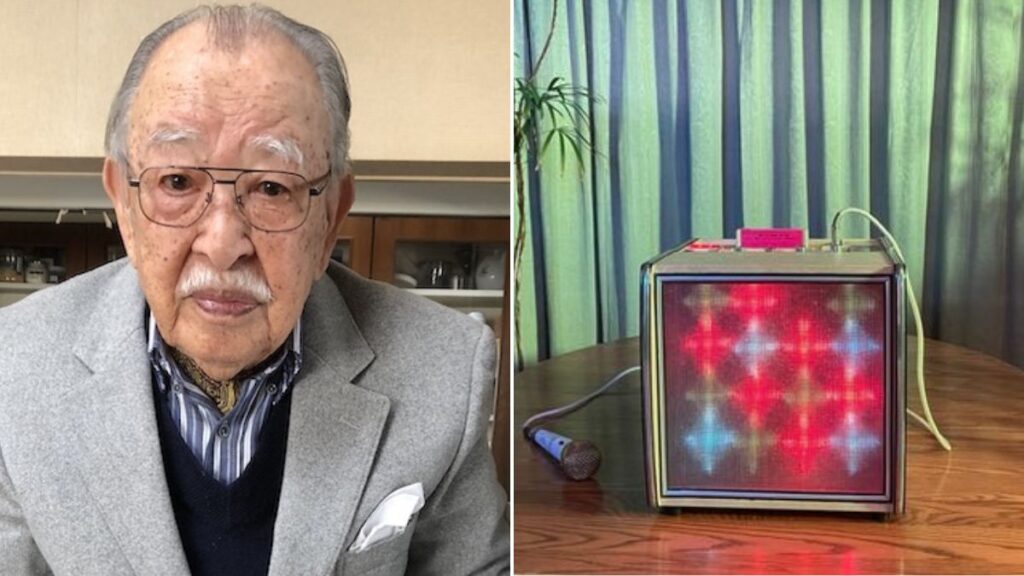Shigeichi Negishi, the Japanese engineer that created the world’s first karaoke machine, has died of natural causes at the age of 100.
Before his culturally significant invention made its way around the world, Negishi was running a consumer electronics assembly business called Nichiden Kogyo. Eventually, as The Wall Street Journal tells in their obituary for Negishi, the entrepreneur was struck with inspiration in 1967 and worked to create a machine that would provide a live backing track to sing over. He and his staff at Nichiden Kogyo then wired together a microphone, speaker, and tape deck, and tested it to success.
This contraption became the prototype for the Sparko Box, which is credited as the first commercially available karaoke machine. Negishi placed the instrumental tracks on an eight-track cassette and included lyrics in a booklet. The term ‘karaoke’ itself emerged years prior in Japan to describe these instrumental backing tracks, and Negishi’s invention began to inspire other engineers to replicate it.
Negishi never patented the Sparko Box, and ceased production eight years after inventing it due to distribution issues. To this day, only one Sparko Box remains, which The Wall Street Journal claims is kept by Negishi’s family as a memento — meanwhile, In a 2020 interview with Kotaku, Negishi demonstrated that one of his Sparko Boxes were still operational.
Meanwhile, Japanese businessman Daisuke is also credited as one of karaoke’s early inventors and revolutionaries, and singer and vocal coach Toshiharu Yamashita also created and distributed a similar eight-track cassette with instrumental playbacks in 1970. Though Negishi is credited as the initial inventor, Daisuke is more often referenced as karaoke’s godfather due to his more successful business model.
Though The Wall Street Journal just confirmed Negishi’s death today, March 15th, he was reportedly confirmed dead on January 26th. He is survived by three children, five grandchildren and eight great-grandchildren, with his daughter Atsumi Takano telling the publication that the discrepancy on who is the true inventor of karaoke never bothered him. “He felt a lot of pride in seeing his idea evolve into a culture of having fun through song around the world. To him, spending a hundred years surrounded by his family was reward enough.”
